The user research participant’s journey: a discovery study
8th February 2018

“We should start to focus on how we are doing user research, and how is a conversation that we don’t have often enough.” Back in March 2017, these were some of the words that motivated information architect and service designer Nic Price to join user researcher Ben Cubbon in an exciting discovery journey.
It all started with Ben’s talk at UX Wales about the way user researchers communicate during a research session, inspired by Steve Portigal’s book Interviewing Users. “The purpose of the talk was to say that as researchers we constantly need to be checking how we conduct research to make sure that participants understand what is going on,” Ben Cubbon explains.
“Nic came along to that talk to give me some moral support. Afterwards we continued the conversation at which point we both simultaneously asked: I wonder what it is actually like to be a participant. We tried to answer, but of course we were making a ton of assumptions. We knew that there was only one way to really understand the answer to that question, and that was to conduct some research.”
We’re going on an adventure
Since posing this question, Ben and Nic have been on a journey to really understand what the participants experience when taking part in user research. More than gaining knowledge, this was “a great opportunity to promote understanding of what we do when we research within our project and product teams. We had the hope when we started that we might discover new ways to communicate what we do when we do user research by looking at things from a participant’s point of view.”
After running a survey, interviews with participants and shadowing a team of user recruiters, Ben and Nic gathered some interesting (and surprising) facts.
“First, from the participant’s point of view, the research starts much earlier than on the actual day of the research. From sitting with People for Research we discovered that potential participants are starting to provide relevant research data during recruitment. This was echoed through our findings when speaking with participants. It showed that we need to consider the needs of the participants much earlier than the day of the research.”
“Second, the amount of confusion and anxiety that participants feel before a research session. Anecdotally we heard stories of participants feeling ‘exam nerves’ before taking part in a piece of research, as they were worried about ‘not answering the questions well enough’. This showed us that, as a research community, we’re not doing enough to explain to participants what to expect from the research session.”
The research also showed the following:
+ During the recruitment process, participants felt concerned if they didn’t know where the research was taking place.
+ Participants were more comfortable when they fully understood the nature of the research (for example, what exactly they were testing/talking about or which company/organisation was behind the research).
+ After the research had taken place, some participants wanted to share extra feedback (something they only remembered after leaving the session), but didn’t know how to do it.
More to come
At UX Bristol 2017, Ben and Nic announced they were taking the project into Alpha, which is now happening.
According to Ben, “by going back through the findings of the discovery, we have drawn up three design hypothesis statements that describe the users’ needs that we discovered, and what we believe will be the effect if we meet those needs.” These three design hypothesis are:
1. If we describe what user research is, and what the different research formats are, to potential participants then more people are likely to take part in research and feel less anxious when they do.
2. If we provide a mechanism for participants and researchers to communicate after a research session has finished then better insights will be gathered by the research team, and participants will feel like their input has more value.
3. If we inform user researchers of the biases and limitations that a research format can place on a participant then user research will use multiple formats when conducting research which will increase the diversity of participants and improve the quality of the insights for a project
“In addition, through doing this work we have inadvertently discovered there is no place in which user researchers can come together to discuss how we might design our research to better meet participants needs. As a result, we have created a Medium page. The intention being that it becomes a place where the user research community can share stories, thoughts, ideas on how research might be more participant-centric.”
The word ‘community’ means a lot to Ben and Nic. This is why they published their Participant Experience task model under the Creative Commons License. “No one person can own the participant experience, everyone in user research has a responsibility in which to make research inclusive and accessible. And getting this right is hard work. That’s why we are looking to create a community in which to help explore these hypotheses and communicate the importance of meeting our participant needs.”
More recently, Ben and Nic presented their workshop at UCD Bristol in January, which helped to spread the word about the project and prompted positive feedback amongst the attendees.
Several companies and experts are already a part of this community connected to Participant Needs, but Ben and Nic want to get more contributors involved. If you would like to become part of this project, you can do it by tweeting at Ben Cubbon and Nic Price.
This article was originally published on the UCD Bristol Medium page.
![]() Maria Santos, Head of Digital Ops & Data Protection
Maria Santos, Head of Digital Ops & Data Protection
If you would like to find out more about our in-house participant recruitment service for user testing or market research get in touch on 0117 921 0008 or info@peopleforresearch.co.uk.
At People for Research, we recruit participants for UX and usability testing and market research. We work with award winning UX agencies across the UK and partner up with a number of end clients who are leading the way with in-house user experience and insight.


